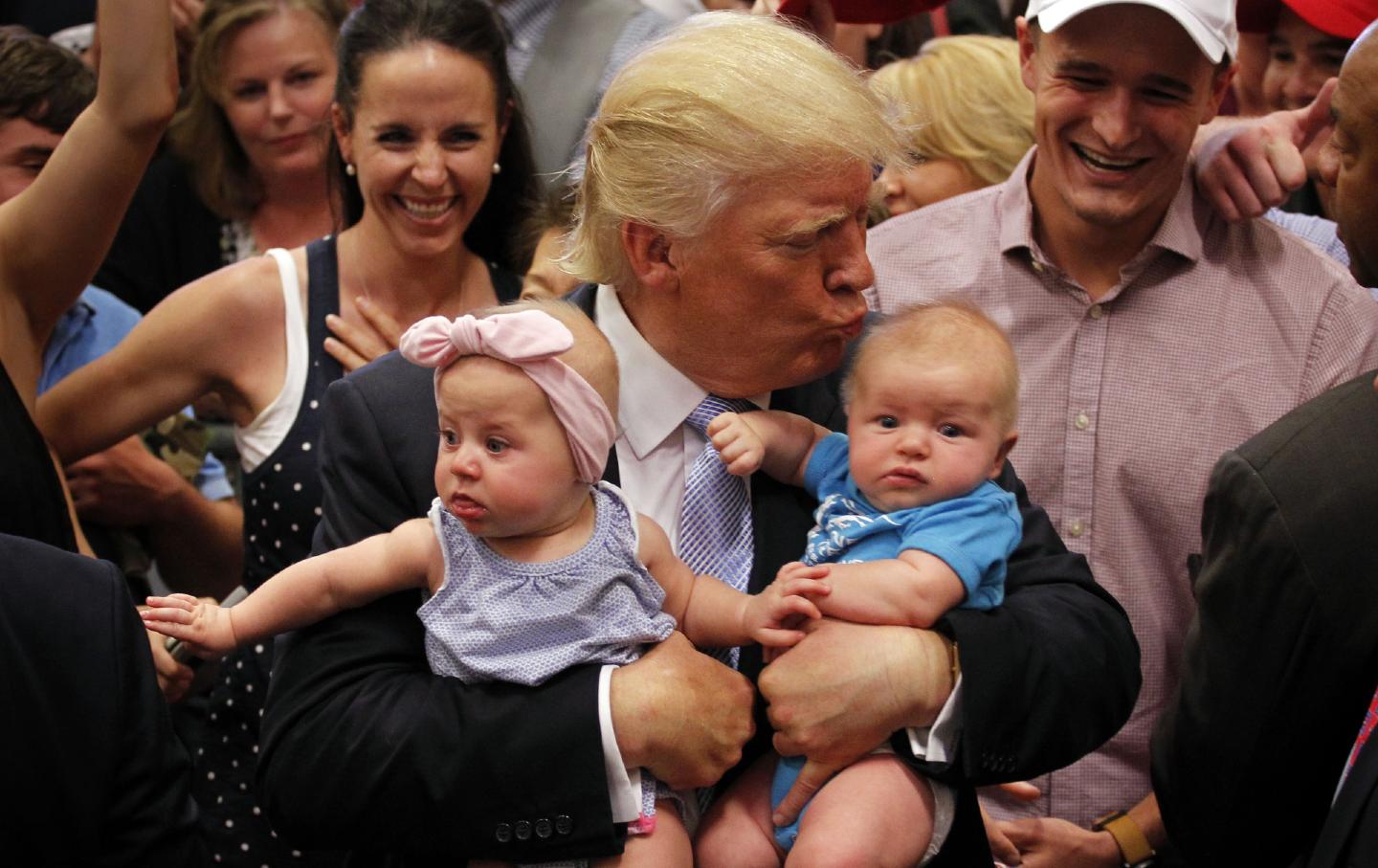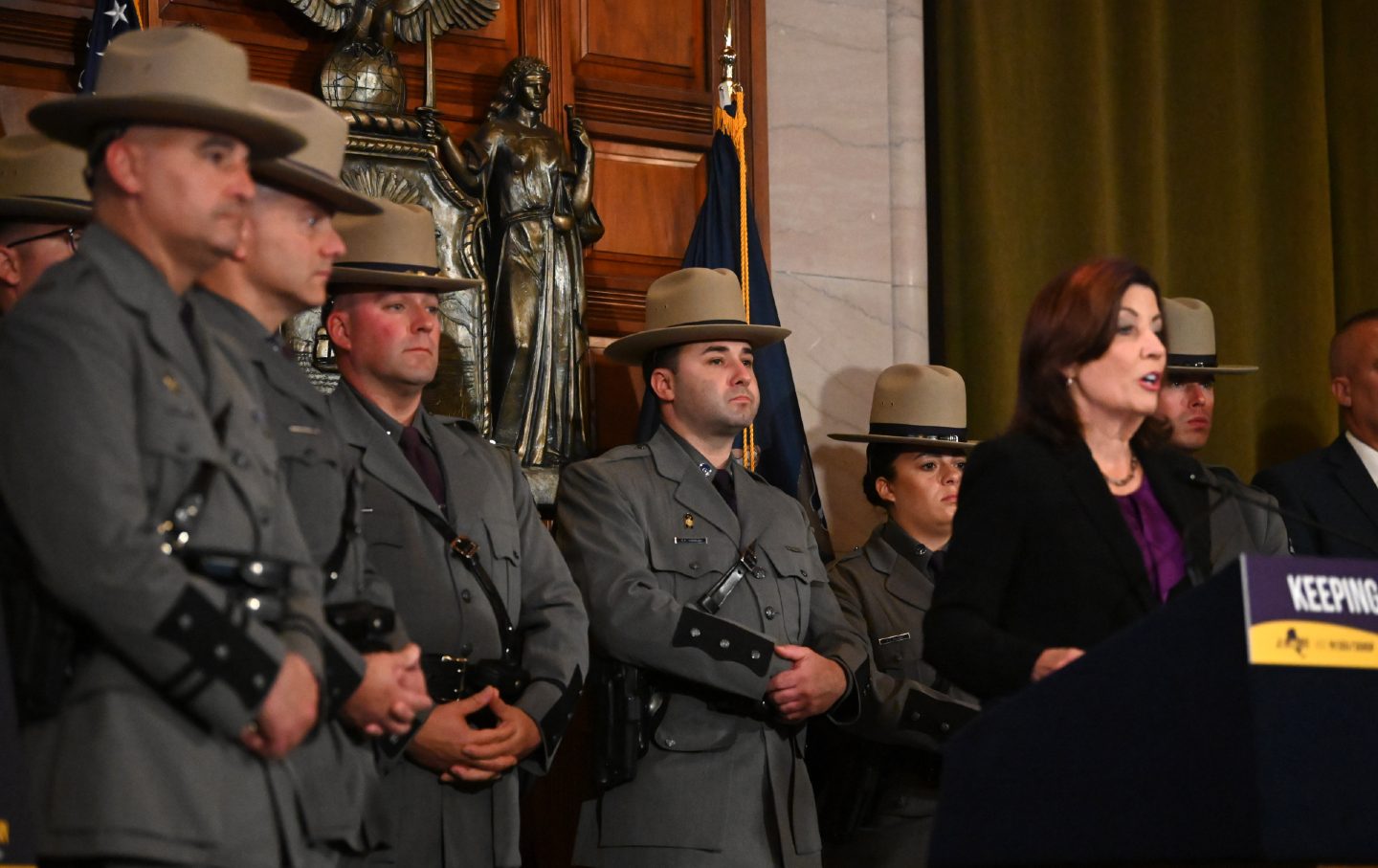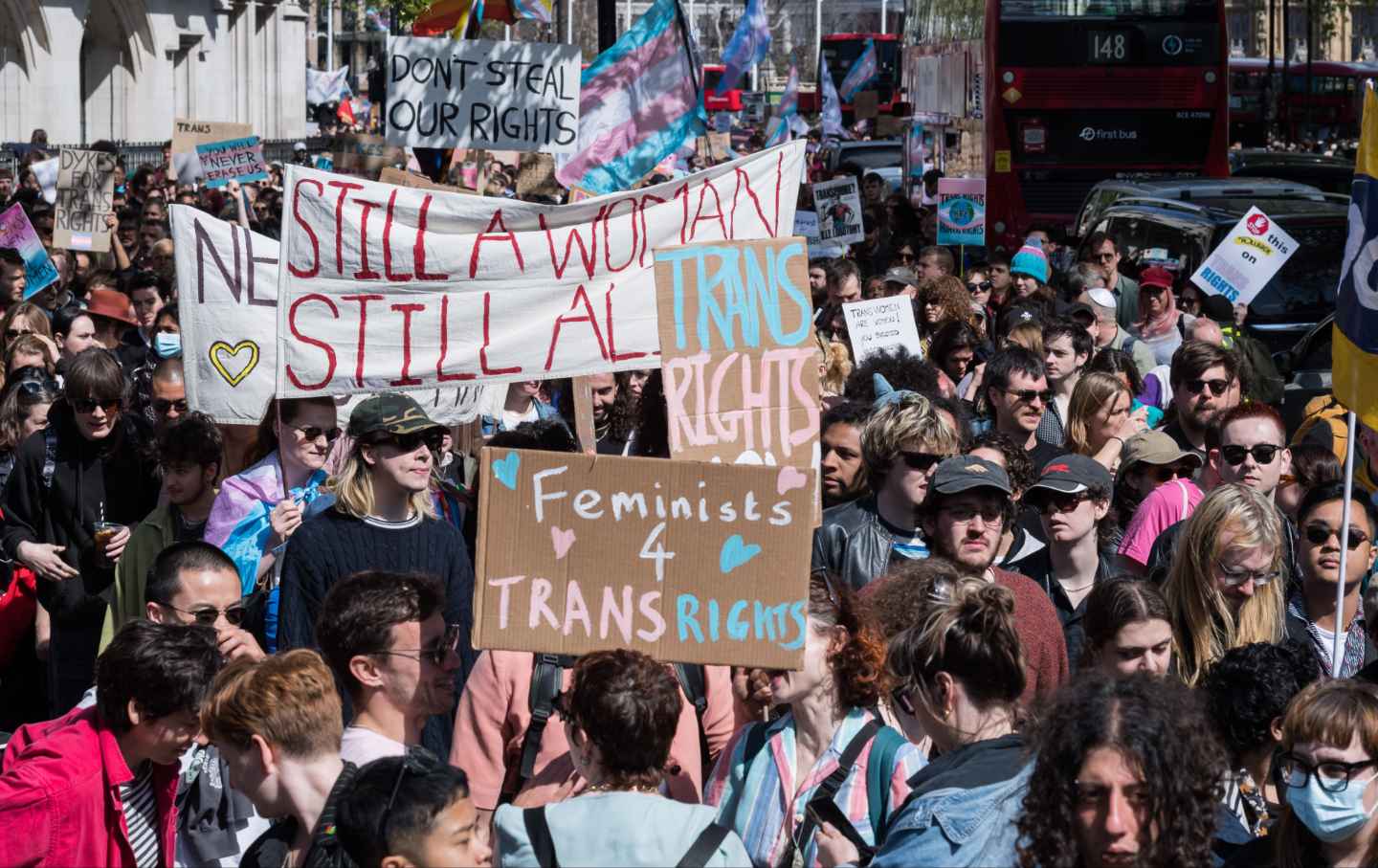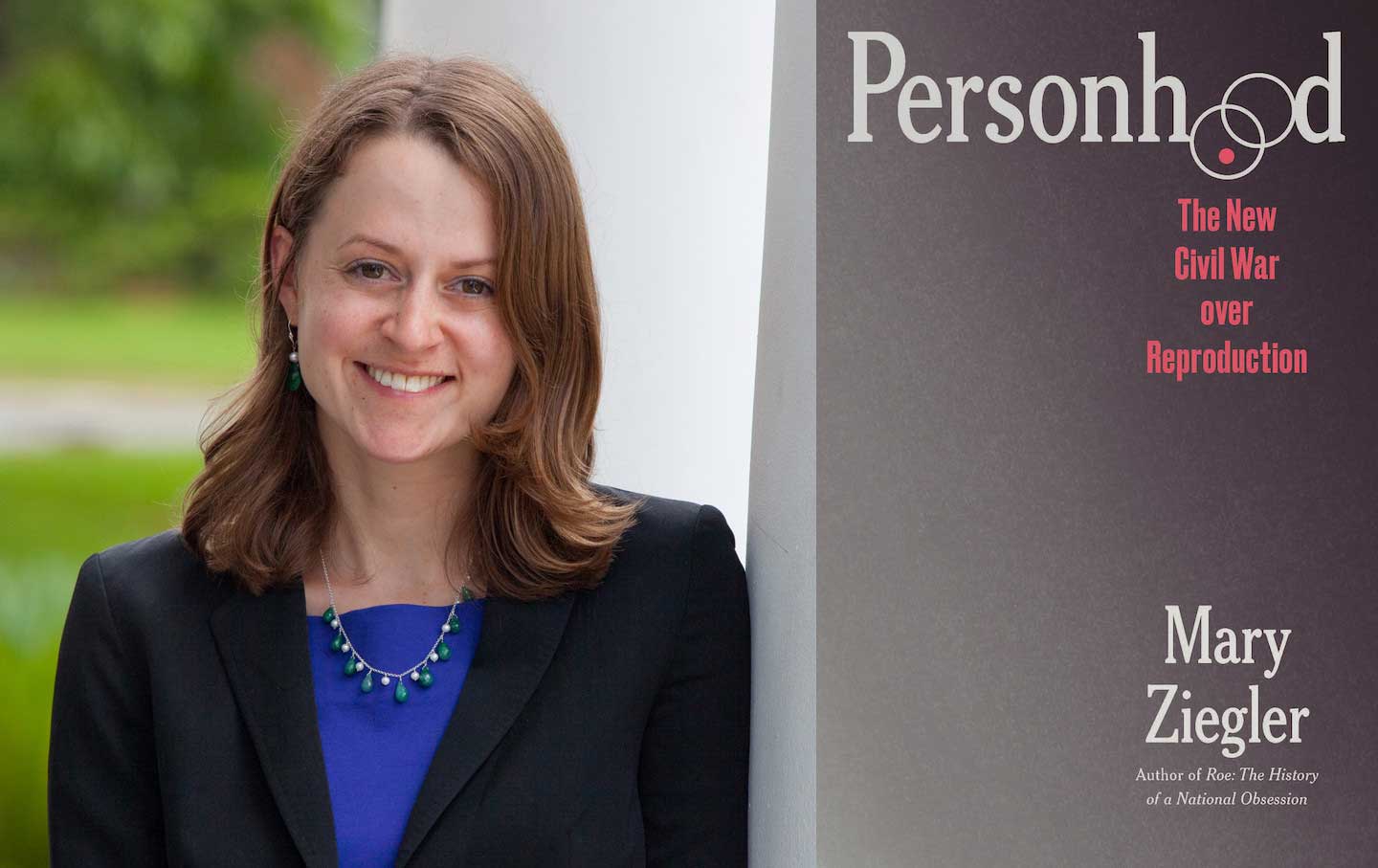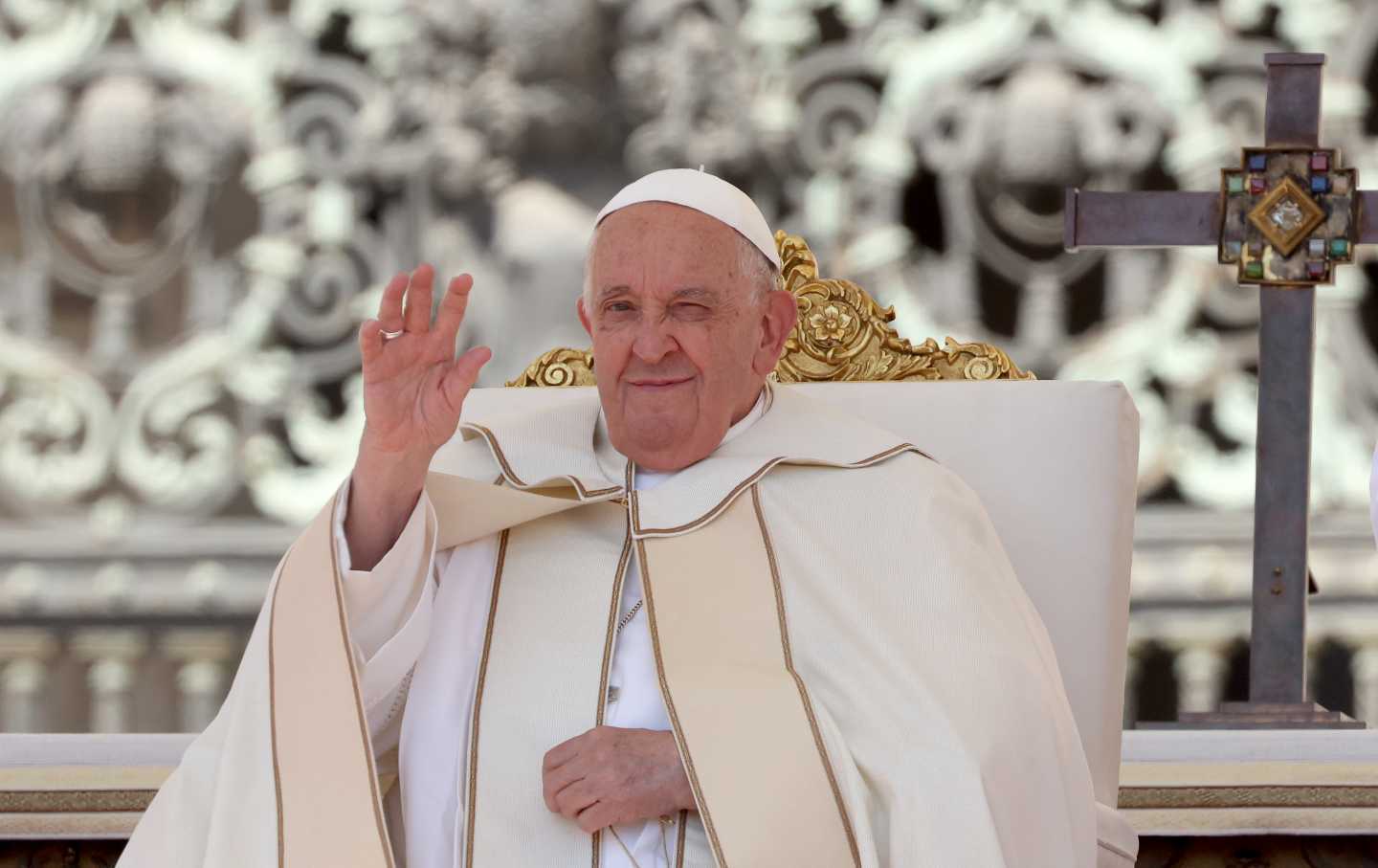Solidarity Between BLM and Palestine Has Deep Roots
Black liberationists have long found kinship with the Palestinian cause, seeing a common desire to live free of violence.
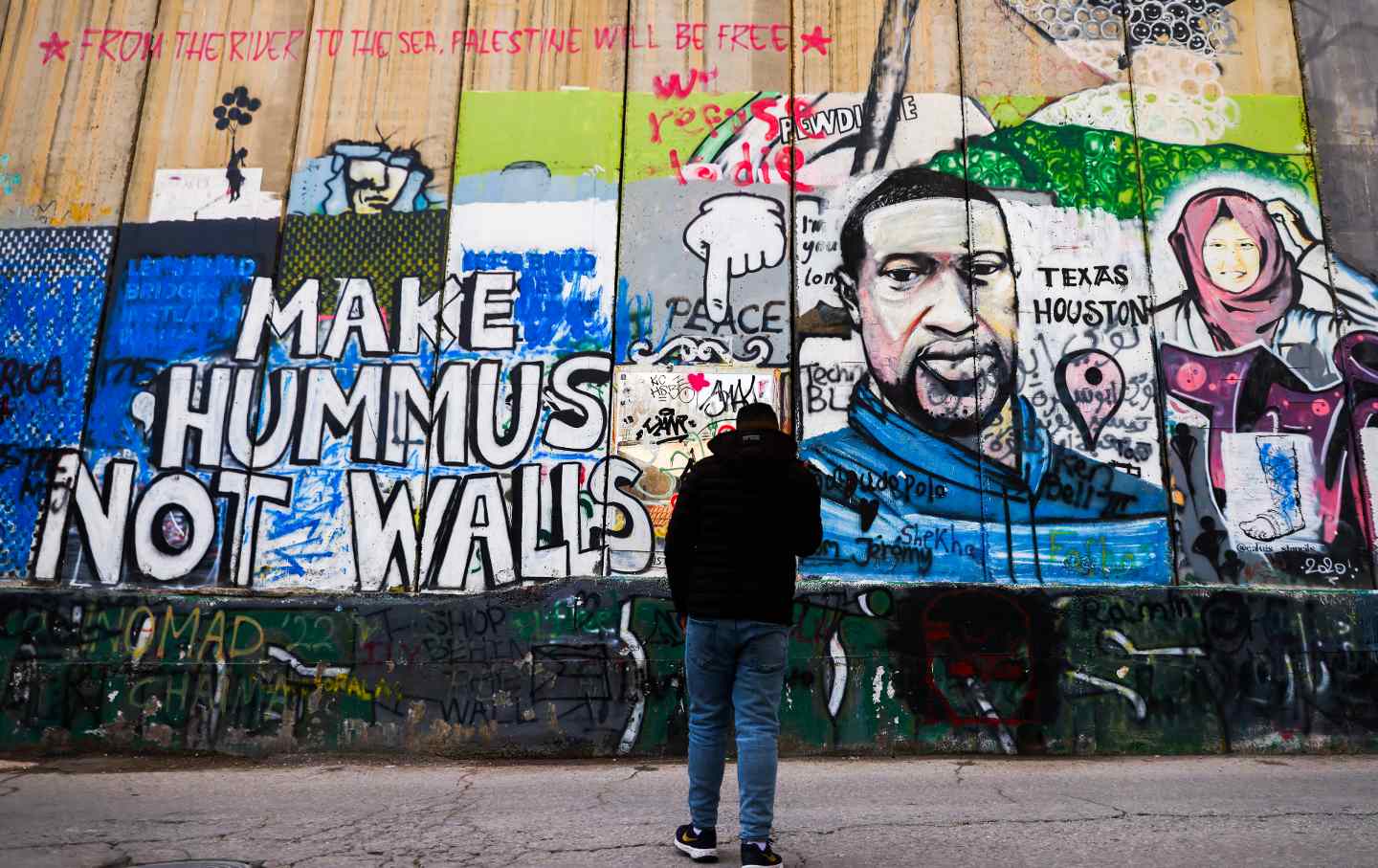
During the racial justice uprisings of 2020, multiple murals of George Floyd appeared in Gaza and the West Bank. Meanwhile, in the US, Palestinian flags became a common sight at Black Lives Matter protests, and in 2021, the official BLM organization issued a statement declaring “solidarity with Palestinians” and opposition to “settler colonialism in all forms.” That year, The Washington Post wrote that BLM’s influence had “changed the US debate on the Mideast,” increasing support for Palestinians among self-identified Democrats. At its zenith earlier this year, that support, according to polls, eclipsed sympathy for Israel for the first time in more than two decades. But the bloodshed in the Israel-Gaza war has fractured the left and the Democratic Party—and revealed deep fissures within the Black community.
Historically, radical Black activists have found kinship with the Palestinian cause. During his third trip to the Middle East in 1964, Malcolm X advocated for “the right of the Arab refugees to return to their Palestine homeland.” Two months later, he wrote in the English-language Egyptian Gazette, “There are over 100 million of our people in the western hemisphere who are of African origin. Just because our forefathers once lived here in Africa, would this give Afro-Americans the right to come back here to the mother continent to drive the rightful citizens…from their cities, confiscate all their property for ourselves, and set up a ‘new Afro-American nation’—as the European Zionists have done to our Arab brothers and sisters in Palestine?” But Malcolm X was an outlier. Black civil rights figures overwhelmingly supported the Zionist cause even prior to the Holocaust, at a time when many leftist American Jews opposed the idea. As early as 1916, the pan-Africanist Marcus Garvey spoke in terms of a Black Zionism. (“When the Jew said, ‘We shall have Palestine!,’” Garvey said, “the same sentiment came to us when we said, ‘We shall have Africa!’”) NAACP cofounder W.E.B. Du Bois wrote after the Holocaust that a “theoretical demand for a [homeland] now became a necessity for more than a million displaced and homeless Jews.” The same year, A. Philip Randolph advised Black Americans to “fight for the right of the Jews to set up a commonwealth in Palestine.” And though United Nations mediator Ralph Bunche privately registered skepticism about the permanence of the 1949 Middle East armistice he had brokered—which resulted in his becoming the first Black Nobel Peace Prize winner—he betrayed no lack of faith in the project publicly.
The 1967 Six-Day War saw Israel seize the West Bank and Gaza Strip, just as the Student Nonviolent Coordinating Committee was becoming more internationalist. A 1967 SNCC newsletter included the article “The Palestine Problem: Test Your Knowledge,” which included a series of “Did you know?” questions about the founding and history of Israel. The article drew charges of anti-Semitism from civil rights leaders, including Randolph and Bayard Rustin, as well as from Jewish organizations, and survives as documentary evidence of the ideological tensions separating the civil rights guard and emerging Black Power transnationalism. In a follow-up message in August 1967, SNCC wrote, “We recognize Hitler’s massacre of the Jews as one of the worst crimes against humanity,” adding: “By the same token, we do not see how the Jewish refugees and survivors could ever use this tragedy as an excuse to imitate their Nazi oppressors—to take over Palestine, to commit some of the same atrocities against the native Arab inhabitants, and to completely dispossess the Arabs of their homes, land and livelihood.” In 1970, the Black Panther Party released a statement declaring, “We support the Palestinians’ just struggle for liberation one hundred percent.”
Related Articles
Alliances between Black Americans and Palestinians seemingly dissipated in the late 1970s and ’80s amid an overall downturn in Black liberation activism, driven in part by COINTELPRO and the FBI’s subsequently declassified campaign to discredit the movement; the arrests and assassinations of movement leaders; and the mainstream media’s scaremongering narratives. But injustice—with its perennial partner, tragedy—would reestablish the relationship in 2013. The acquittal of George Zimmerman, the murderer of Trayvon Martin, sparked the movement that would become Black Lives Matter. In July 2013, marchers at a protest in the Palestinian town of Bethlehem donned hoodies in recognition of Martin and those protesting his killer’s impunity. The police killing of Michael Brown in Ferguson, Mo., in 2014, and the explosion of protests that followed, occurred during weeks of bombing in Gaza that, the prominent Israeli historian Benny Morris wrote, caused a “massive civilian toll among Palestinians.” The Palestinian American activist Bassem Masri, who often live-streamed protests, wrote, “The timing of the two events woke up a lot of people,” as did the similar postmortem demonization of Palestinians and Black Americans who had been killed as a result of state-backed violence. “People naturally saw the connections.… When I showed up to protest in Ferguson and introduced myself as a Palestinian, people there immediately met me with respect,” Masri wrote in a 2014 essay titled “In Ferguson, I Am Reminded of Palestine”: “Our common goal is to live in peace and to not fear for our children’s lives when they are walking down the street.” Some Palestinian activists used social media to offer advice on how to deal with tear gas, noting that the same companies manufactured the canisters used against Palestinian and Ferguson protesters. BLM activists observed that the police chief of St. Louis County, Tim Fitch, had been among the thousands of FBI, CIA, ICE, and local American police who were sent to Israel to learn “counterterrorism” tactics after 9/11, a practice detailed in a 2018 joint investigative report from Jewish Voice for Peace and Researching the American-Israeli Alliance.
Activists, organizers, and students in the US and Palestine deepened their connections. During the 2014 Right to Education Campaign, 10 students from Palestine’s Birzeit University traveled to St. Louis and Ferguson to meet with local activists and organizers. In January 2015, a coalition of journalists, artists, and organizers representing Ferguson, Black Lives Matter, Black Youth Project 100, and other groups, organized by Dream Defenders, spent 10 days in the occupied Palestinian territories and Israel. “We thought the connections between the African American leadership of the movement in the US and those on the ground in Palestine needed to be reestablished and fortified,” Ahmad Abuznaid, a cofounder of Dream Defenders, told Ebony. “As a Palestinian who has learned a great deal about struggle, movement, militancy, and liberation from African Americans in the US, I dreamed of the day where I could bring that power back to my people in Palestine.” That cross-cultural meet-up yielded the organization Black for Palestine, which issued the Black Solidarity Statement With Palestine, signed by more than 1,000 Black scholars, activists, students, and artists. The collective also released the video When I See Them, I See Us, which the Palestinian American human rights attorney and producer Noura Erakat said “highlight[s] [the] similarities, but not sameness, of Black and Palestinian life.” In 2016, the Movement for Black Lives, representing more than 50 Black organizations, published a platform that included a statement identifying America’s support for Israel as “complicit in the genocide taking place against the Palestinian people…. Israel is an apartheid state with over 50 laws on the books that sanction discrimination against the Palestinian people.”
In the immediate aftermath of the brutal attacks by Hamas on Israeli civilians on October 7, establishment-oriented Black civil rights groups and political actors—the Congressional Black Caucus, the African American Mayors Association, and House minority leader Hakeem Jeffries—all issued statements affirming solidarity with Israel and condemning Hamas’s attacks. The Rev. Al Sharpton’s National Action Network, the National Urban League, and the NAACP issued a joint statement emphasizing humanity’s “commitments to one another” and extending prayers to all “innocent civilians’ families.” In contrast, many BLM chapters across the country reaffirmed solidarity with Palestinians, often garnering significant backlash. Some BLM chapters went too far. BLM Chicago, for instance, posted an image on Twitter depicting paragliders—used by Hamas in the attacks—and stating “I Stand With Palestine.” The group later removed the post and wrote that they “aren’t proud of it.” That message was, without question, unacceptable and did nothing to help the Palestinian cause. Still, I’m begging everyone not to fall for right-wing activist Christopher Rufo’s stated intention to “create a strong association between Hamas, BLM, DSA, and academic ‘decolonization’ in the public mind.” The recent history of BLM’s solidarity with Palestine—and the longer history of Black radicals’ embrace of that cause—is rooted not in rhetoric, but in organizing, mutual aid, and the radical idea that everybody—everybody—has got to be free.
Hold the powerful to account by supporting The Nation
The chaos and cruelty of the Trump administration reaches new lows each week.
Trump’s catastrophic “Liberation Day” has wreaked havoc on the world economy and set up yet another constitutional crisis at home. Plainclothes officers continue to abduct university students off the streets. So-called “enemy aliens” are flown abroad to a mega prison against the orders of the courts. And Signalgate promises to be the first of many incompetence scandals that expose the brutal violence at the core of the American empire.
At a time when elite universities, powerful law firms, and influential media outlets are capitulating to Trump’s intimidation, The Nation is more determined than ever before to hold the powerful to account.
In just the last month, we’ve published reporting on how Trump outsources his mass deportation agenda to other countries, exposed the administration’s appeal to obscure laws to carry out its repressive agenda, and amplified the voices of brave student activists targeted by universities.
We also continue to tell the stories of those who fight back against Trump and Musk, whether on the streets in growing protest movements, in town halls across the country, or in critical state elections—like Wisconsin’s recent state Supreme Court race—that provide a model for resisting Trumpism and prove that Musk can’t buy our democracy.
This is the journalism that matters in 2025. But we can’t do this without you. As a reader-supported publication, we rely on the support of generous donors. Please, help make our essential independent journalism possible with a donation today.
In solidarity,
The Editors
The Nation


